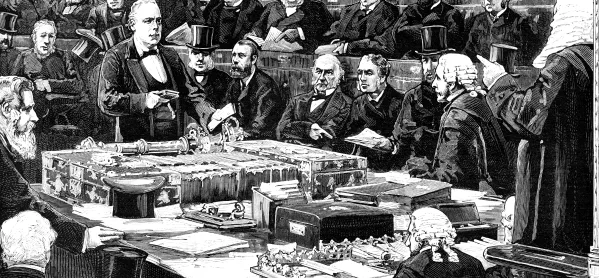- Home
- ‘Schools policy shouldn’t be about Tory MPs’
‘Schools policy shouldn’t be about Tory MPs’

My father was a man of few words. Once, at some civic lunch or other, he was asked unexpectedly to say grace. Without hesitation, he asked everyone to stand up, closed his eyes, let the silence thicken, and said, pithily, “Thank God.” Then he sat down.
His philosophy for life had a similar reductive pragmatism. I remember him saying: “You should aim to leave the world in slightly better shape than when you arrived.” That word “slightly” indicated his realism.
When I stepped down after 15 years of headship, I didn’t get any cards from people that said: “Thanks for all of those school development plans” or “I loved your use of lesson objectives”.
Instead, we probably all hope we made a difference to the many pupils we taught and the colleagues we worked alongside. To use my father’s performance measure, we hope that for the most part we might have made their worlds slightly better.
In my inaugural speech at the Association of School and College Leaders’ annual conference, I suggested it was time for all of us in leadership to regain our sense of mission, of heightened ambition, in order to create a collective educational legacy of which we could be proud.
And here’s the challenge I posed: “Whether we are in the leadership team of a school or college, or leading the Department for Education, or leading Ofsted, we should resolve to look to the bigger horizon, to ask the bigger questions, and to fixate less on policies and practices that - in due course - we’ll look back on and regard as trivial, distracting, unambitious.”
Grammar schools plan ‘is trival and unambitious’
So much for that. Last week’s announcement by the secretary of state setting aside £50million for expanding the number of places at grammar schools is more than disappointing. It’s trivial, distracting, and unambitious.
One Conservative MP said to me this week: “The policy is there to keep some backbenchers happy. Think how much worse it could have been.” She talked about it in terms of throwing red meat to the faithful.
We really shouldn’t be judging policy according to some notional scale of how much more misguided it could have been. We should be judging it by whether it is likely to achieve the government’s stated aims of improving the life chances of children and young people - especially those from the most disadvantaged backgrounds.
That, after all, is the big, important stuff. And on some of it, we’ve recently been sensing the optimistic strains of a different mood music - such as around developing a long-term career strategy for teachers, the trialling of research sabbaticals, the establishment of a task group to finally sort workload.
Then there’s the simplification of accountability, with a welcome clarification of who does what - Ofsted doing the inspections and regional schools commissioners brokering support.
Even on the biggest issue - the crisis in school and college funding - we seem to be moving out of the age of denial, with ministerial recognition that finances are tight.
Of course, there’s much further to go on all these issues, and in particular on funding. But neither should we underestimate the significance of the various initiatives mentioned above and the language being used to frame them. There is a real appetite in the corridors of power to work constructively with the profession to solve problems.
That is one of the reasons it was so disappointing to see last week’s announcement about expanding the number of selective places, of using scarce resources as a crowd-pleasing gesture to a group of Tory backbenchers for whom grammars are an article of faith.
Don’t get me wrong. Grammar schools do a great job for the young people they teach. But the problem with expanding grammars is the damage that this causes to other schools. The evidence is clear that creating more selective places hits the attainment of the non-grammar children - that it actually works against social mobility.
In a report in 2016 the Education Policy Institute concluded: “The resources which might be used to create additional grammar schools could be deployed to help create high-attaining non-selective schools. High-ability pupils entering such schools do as well as they would in grammar schools, up to GCSE level. They also cater for many more disadvantaged pupils.”
Last week’s policy announcement runs contrary to this evidence, and contrary to the rest of the direction of travel in Whitehall. Instead of policy which is painstakingly constructed on the basis of what works in the here and now, we instead have something which harks back to a different era. It is the view that selection worked well for a lucky few in the 1950s and is thus the ticket to social mobility today. No matter that the world has utterly changed.
That the policy which has emerged is a watered-down version of the much wider return to selection that the Conservatives originally intended is certainly a relief. But surely education should be guided by the big picture rather than by making backbenchers happy.
Geoff Barton is general secretary of the Association of School and College Leaders. He tweets @RealGeoffBarton
Want to keep up with the latest education news and opinion? Follow Tes on Twitter and Instagram, and like Tes on Facebook
Keep reading for just £1 per month
You've reached your limit of free articles this month. Subscribe for £1 per month for three months and get:
- Unlimited access to all Tes magazine content
- Exclusive subscriber-only stories
- Award-winning email newsletters



